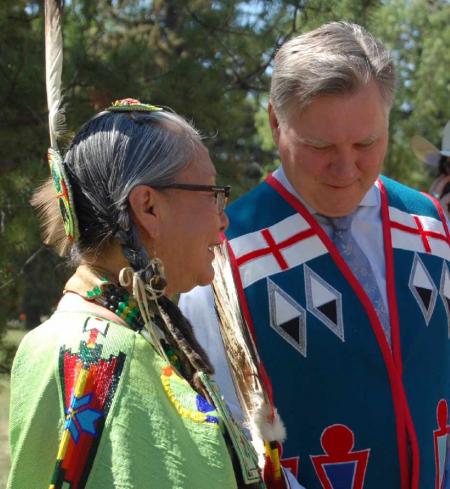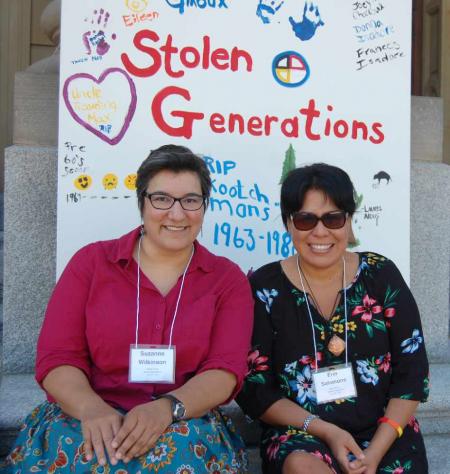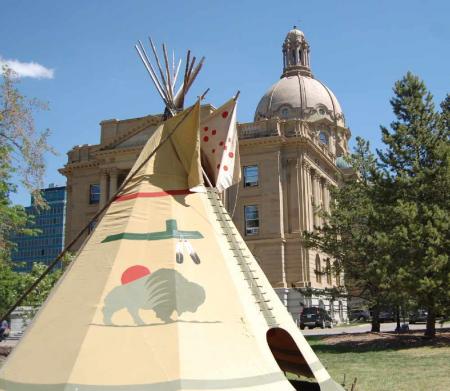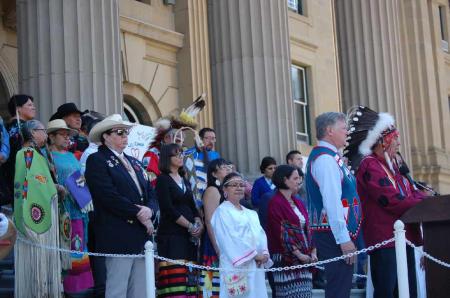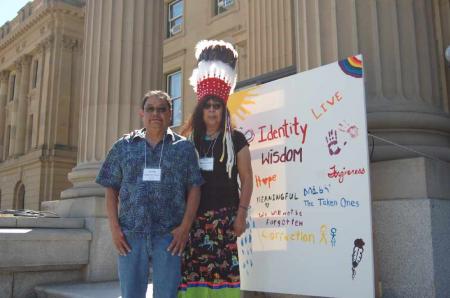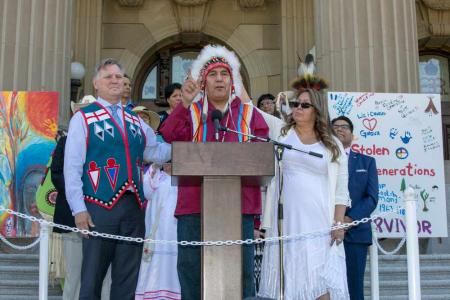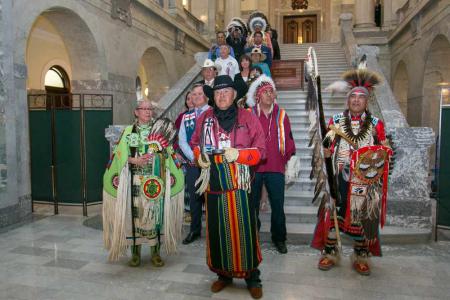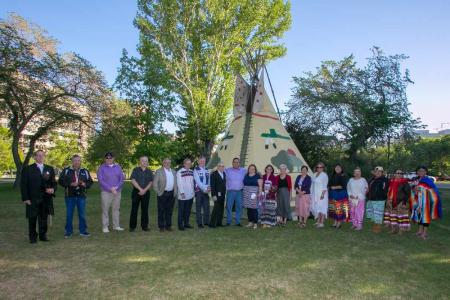Image Caption
Summary
Audio
{ALBUM_998746}
By Shari Narine
Windspeaker Contributor
EDMONTON
Emotions ran high yesterday as Alberta Premier Rachel Notley stood in the legislature and acknowledged the wrong doing of previous provincial governments.
She apologized to Sixties Scoop survivors for “the loss of families, of stability, of love, we are sorry. For the loss of identity, of language and culture, we are sorry. For the loneliness, the anger, the confusion, and the frustration, we are sorry. For the government practise that left you, Indigenous people, estranged from your families and your communities and your history, we are sorry.”
The words were strong, appeared heartfelt, but Krista Brown of Maskwacis questioned the sincerity.
“I came up here with mixed emotions and I still have mixed emotions. I don’t know if it’s a sincere apology. People can say whatever they want to say, but if you haven’t lived it, lived through it, you really can’t say that you feel sorry for it,” she said.
But Brown admitted she didn’t know what words Notley could have said that would have made a difference to her. Brown, who videotaped the event, said she will go home and listen to the apology again and then make her decision.
Ruby Medicine Crane and her husband James made the trip from Kainai First Nation to hear the apology in person.
“It has been a long time coming,” Ruby said.
Ruby was taken into care like most of her brothers and sisters. She had many placements, her first in Pincher Creek with a Mormon family, who she said used her and another First Nations foster girl as “a slave.” While she is now strong in her culture, teaches with the Kainai Education Board, and has reunited with her family, including her mother, who is now 86, two of her brothers have passed away and were unable to hear the apology.
“The thing I found with being a Sixties Scooper, there is a stigma toward that … but today, after the apology, we can tell our stories without shame because this was a wrong-doing the Canadian government did to us,” she said.
For Somer Grandbois of the Cold Lake First Nation, the Sixties Scoop claimed three generations in her family: her grandmother, her mother, her brother and her cousin. She brought her daughter to the legislature so she “can understand why we are the way we are.”
The words give her hope, said Grandbois.
“We came this far, so hopefully we can go further, right?” she said.
Adam North Peigan, who drove this process as president of the Sixties Scoop Indigenous Society of Alberta, stressed that today’s apology is only the beginning.
“The reason I feel that moving forward will be successful is because of the work we have done previously with the Alberta government. What happened today didn’t happen overnight. This has been a journey that’s been ongoing probably for the last three or two years. The government of Alberta has stepped up to the plate. They have been a partner. They’ve been a very, very good partner,” he said.
In Alberta, 10,000 to 15,000 Indigenous children were taken from their homes and placed with non-Indigenous families in what became known as the Sixties Scoop, which ran from the 1950s through to the early 1990s right across the country.
North Peigan sent his first letter on the issue to the premier on June 30, 2015. In 2017, the government said it would issue an apology. Over that time, Indigenous Relations Minister Richard Feehan and Children Services Minister Danielle Larivee worked with North Peigan’s group on the apology, which was informed by engagement sessions across the province attended by more than 800 survivors. Feehan and Larivee were at every session.
“We can’t undo what happened. We can apologize for it and we can commit to working together and moving forward as partners,” said Larivee. She added that her department would be cooperatively developing plans with Indigenous communities to meet their needs.
Feehan said that the government will continue to work with North Peigan’s group to make sure survivors get the supports they need. Whether that will involve additional funding may be a topic for discussion.
“It’s all part of a bigger piece of work that needs to be done and that is a true reconciliation of the Nations of this province, and of course of this country, to get to a place we’ve never been before so we’re cutting a new trail. We are learning about each other and we’re achieving things that have not been achieved. That’s a worthy task,” said Feehan.
The province’s apology did not include financial compensation.
Audio interview with Adam North Peigan by Jeremy Harpe of CFWE-FM.


